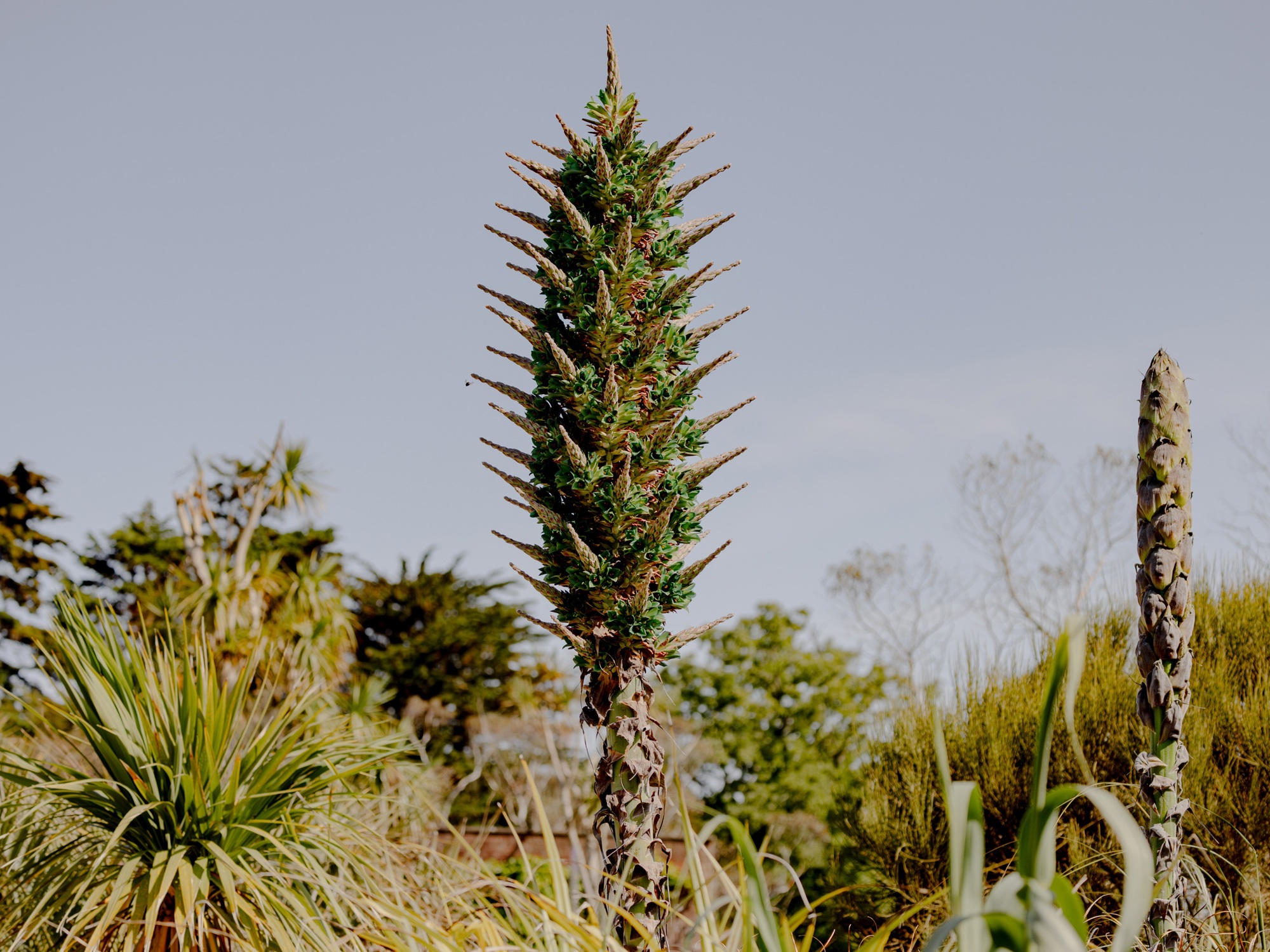Bizarre, strangely beautiful and highly elusive, parasitic plants have been defying comprehension for centuries. Now, new international research* published today (Wednesday, March 23) calls for prioritisation, scientific focus and horticultural resources to ensure these weird works of nature can be saved in the face of the biodiversity crisis and climate emergency.
Parasitic plants, such as the world’s largest flower, the striking Rafflesia of South-East Asia, fascinate specialists and public alike. Yet at least 76 per cent of the 4,750 known species have never been grown and many are under severe threat in their natural habitats. They are notably absent from the living collections and conservation strategies of many botanic gardens.
These plants suffer relative neglect from scientists and conservation horticulturists because they defeat efforts to research and cultivate them and can be difficult to monitor in their natural habitats. Against this backdrop, a group of international scientists has examined all 12 families of parasitic plants, presenting case studies highlighting inconsistencies in research and conservation and looking to fill the gaps in knowledge. Now, at a time when the future might appear bleak, they claim real hope can be taken in the wake of the breakthrough cultivation of the world’s greatest botanical enigma, Rafflesia.
Chris Thorogood, Deputy Director and Head of Science at the University of Oxford Botanic Garden and Arboretum has been working with Bogor Botanic Garden Plant Biologist and Systematist Joko Ridho Witono, Curator of Rafflesia at Bogor Botanic Garden Sofi Mursidawati and Curator of Vascular Plants at Munich Herbarium Andreas Fleischmann.
Back just days ago from the rainforests of the Philippines, documenting the Rafflesia that grow there, Chris explained: “These are the most bizarre organisms in the plant kingdom yet, few have ever been grown before. Now is the time for scientists and conservation horticulturists to place greater priority on parasitic plants.
“By reviewing recent breakthroughs in propagation techniques at botanic gardens internationally, our aim has been to identify guiding principles for future cultivation and conservation. Key to this has been documenting the lifecycle of a range of parasitic plants, including Rafflesia, and assessing successful and failed attempts at propagation.”
Having united a range of case studies, the scientists believe the best hope for the cultivation and possible ex-situ conservation of these plants must be a concerted effort, for example in the form of a Global Consortium for Conservation of Parasitic Plants, or a Parasitic Plant Specialist Group under the International Union for Conservation of Nature (IUCN).
The first step comes with the publication of the paper in Sibbaldia, the International Journal of Botanic Garden Horticulture published by the Royal Botanic Garden Edinburgh (RBGE). Editor Kate Hughes explained why there was an eagerness to publish this research: “This review of the cultivation one of the trickiest groups of plants – those which parasitise others in order to grow – is crucial. It informs and encourages botanic gardens and others to take up the challenge of growing them in their living collections. This substantial piece of research gives horticulturists a better understanding of how these plants function, thereby improving opportunities to integrate them into conservation programmes. This is the mission of the journal Sibbaldia: to share knowledge leading to the conservation of species. As an institute, RBGE believes it is important to publish this innovative work. It is a bold step for the conservation of parasitic plants.”
*Parasitic plant cultivation: examples, lessons learned and future directions by Chris Thorogood, Joko Ridho Witono, Sofi Mursidawati & Andreas Fleischmann is published online in Sibbaldia and can be accessed free of charge.
ENDS
For further information, interviews or images, please respond to this email or contact Shauna Hay on 07824 529 028 or Suzie Huggins on 07385 491 460
EDITOR’S NOTES
Image: Rafflesia has the largest flower on Earth and has proven almost impossible to grow. Botanists at Bogor have pioneered long-awaited techniques to propagate this striking work of nature. In this article, Chris Thorogood @thorogoodchris1 reviews breakthroughs in the cultivation of parasitic plants with his co-authors from around the world
Dr Chris Thorogood is Deputy Director and Head of Science at the University of Oxford Botanic Garden and Arboretum. His research focuses on the evolution of parasitic and carnivorous plants, and plant diversity in floristic hotspots including the Mediterranean Basin, Macaronesia, Southeast Asia, and Japan. Specifically, he is interested in speciation and adaptive radiations in cryptic parasitic and carnivorous plant groups, as well as taxonomic diversity in biodiversity hotspots.
Sibbaldia is a Diamond Open Access peer-reviewed journal providing an opportunity for horticulturists and others in botanic garden horticulture to share their expertise in maintaining and managing botanic garden living collections. It aims to broaden the conversation about the work horticulturists and provide a platform for discussion and learning.
The Royal Botanic Garden Edinburgh (RBGE) is a leading international research organisation delivering knowledge, education, and plant conservation action around the world. In Scotland, its four Gardens at Edinburgh, Benmore, Dawyck and Logan attract more than a million visitors each year. It operates as a Non Departmental Public Body established under the National Heritage (Scotland) Act 1985, principally funded by the Scottish Government. It is also a registered charity, managed by a Board of Trustees appointed by Ministers. Its mission is “To explore, conserve and explain the world of plants for a better future.”

